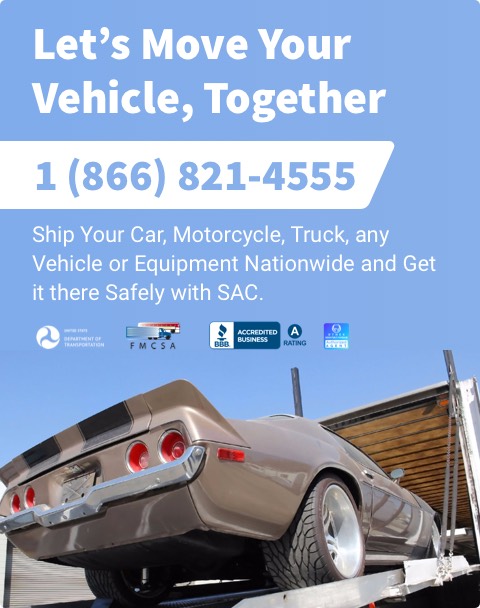The proposal for speed limiters by the FMCSA has generated a lively discussion among truckers in the United States, weighing operational issues against safety improvements. The conversation highlights the need for a sophisticated strategy that takes into account both safety technology and the impact on business operations, with larger carriers showing reluctant support and smaller operators showing caution.
Rising truck maintenance costs in the U.S. have presented significant difficulties for the trucking industry. This article examines the causes of these increases, including components and labor prices, and offers ways fleets may reduce costs through fleet management, data analytics, and alternative sourcing.
The U.S. transportation industry faces significant challenges and dramatic changes in 2024, primarily related to workforce retention, growing prices, and technology integration. The industry’s dynamic character is shown by the effects of Yellow Corp.’s bankruptcy and the move towards sustainable practices like electric vehicles. Reflecting the increased digitalization of the economy, cybersecurity emerges as a critical priority.
In order to preserve safety in the US trucking business, the FMCSA plans to disqualify nearly 15,000 medical examiners. This blog article explores this strategy in detail. It looks at the responsibilities of these examiners, the effects of the suggested modifications, and the National Registry’s technical and security advancements.

This blog article explores the concerning $800 million truck fraud problem in the US, as brought to Congress’s attention by Jeffrey Tucker. It tackles larger industry and global supply chain difficulties, examines the rise in fraudulent tactics, and casts doubt on the driver shortage myth.
This blog article takes a look at the complicated discussion around electric vehicle requirements in the United States, including the opposition from governors, the difficulties with infrastructure, and the worries regarding national security.
We explore the intricacies of a proposed legislative amendment that would raise the minimum insurance requirements for truck drivers in the United States in this detailed blog article. We look at the objections from OOIDA, the background to these initiatives, and the reasons made by proponents and opponents.
Learn about the ground-breaking Houston Truckport, an initiative between Ryder and Kodiak Robotics that represents a significant advancement in autonomous transportation in the United States. This facility initiates the first autonomous operation in Kodiak, a significant milestone for the sector. The partnership with Ryder’s fleet services is poised to transform freight transportation.

This blog post explores the details of New York City’s congestion pricing proposal, emphasizing the court battle with New Jersey on budgetary and constitutional issues. It investigates the difficulties experienced by interstate commuters and throws light on the possible effects on the economy and environment. The article highlights Ship A Car, Inc.’s position as a top auto shipping company that can handle these challenging transportation situations in the middle of these developments.
The FMCSA’s proposal to update the country’s motor carrier safety fitness determination regulations is examined in detail in this extensive blog article. It explores the major studies driving these modifications, examines the reactions of the public and business community, and talks about the shortcomings of the existing framework. The article also discusses the possible benefits of new approaches and technology for improving traffic safety.
With the introduction of autonomous trucks, the United States is poised for a revolution in transportation. This trend is being led by industry leaders like Aurora, Kodiak, and Gatik and is being powered by cutting-edge AI and sensor technologies. These driverless cars provide more economy and safety, but they also bring up serious issues with legislation and job security. The degree to which this technology can be seamlessly incorporated into the current transportation infrastructure will determine how successful it is.
We discuss the most recently implemented changes to the U.S. EV tax credit program in this blog article, emphasizing the IRS ECO site and the lengthening of dealer reporting deadlines. We discuss the changes that will occur in 2024, such as the increased qualifying requirements and the transfer of clean car credits. Additionally covered are the IRS dealer help resources.

This blog article explores the anticipated shifts in the US freight business in 2024. It looks at labor practices, regulatory modifications, and environmental requirements, providing insights into how these changes may affect the sector. With a focus on efficiency, sustainability, and rising to new challenges, the goal is to equip companies for the changing freight landscape.
Learn about the vital role played by the Alaska Highway in North America and the noteworthy improvements made at Pink Mountain. Discover the benefits to local and regional economies, the participation of indigenous people, and the $3.9 million project that will improve road safety.
Greenlane, supported by Daimler and Uber Freight, will revolutionize U.S. commercial transportation with its electric recharge stations. In 2024, this company will promote sustainable transportation and ESG goals, marking a transition in the trucking sector. Greenlane is ready to enable electrified long-haul trucks and a cleaner transportation future with key sites and collaborations.
